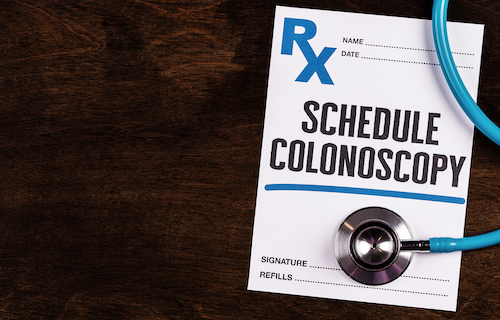New Brunswick, N.J., July 27, 2020 –The presence of COVID-19 has caused many people to fear venturing out for vital medical services like cancer screenings. According to projections from the National Cancer Institute, disruptions in routine cancer care due to the pandemic could lead up to an excess 10,000 deaths from breast and colorectal cancers. Most colorectal cancers can be prevented through regular screening through detection and removal of polyps, so it is important to follow through with appointments for essential care, even during this challenging time. We are doing everything possible to make it safe for our patients to return to getting their important medical care.

Colorectal cancer is the third most common type of cancer in both men and women, according to the American Cancer Society. It may lead to blood in the stool but frequently does not cause any symptoms until it is advanced and starts to spread through the body. If diagnosed at a later stage, the disease can be more challenging to treat.
Colorectal cancer screening is used to detect cancer and remove precancerous polyps. It is typically recommended by the American Cancer Society that colorectal cancer screening for men and women should begin at age 45 and repeated every ten years for those of average risk. Those with a family history and other underlying conditions should speak with their health care provider to determine what screening regimen is appropriate for them. If screening detects an abnormality, diagnosis and treatment can occur quickly. Finding and removing early stage colon cancers is almost always curative. Cancers that have spread beyond the colon or rectum can be much more difficult to treat.
Rutgers Cancer Institute of New Jersey in partnership with RWJBarnabas Health are hard at work to provide this sort of care close to home and minimize the risk of patients and other healthcare workers from developing COVID-19. We are working hard to reduce risks by screening all patients and clinical employees, following social distancing measures, and enhancing rigorous cleaning practices among other ways in which we maintain a safe environment for you and all patients.
Schedule an Appointment
To help reduce the incidence of colorectal cancer, ScreenNJ was developed under the leadership of Rutgers Cancer Institute of New Jersey in partnership with the New Jersey Department of Health. The initiative is a collaboration of organizations across the state committed to improving cancer screening, prevention and education. This resource can be utilized to find local colorectal (as well as lung) cancer screening programs and information about the types of testing and benefits. And for those who may be in need of further examination stemming from a colonoscopy, new patient appointments can be made with one of our cancer specialists by calling 844-CANCERNJ (844-226-2376) or visiting rwjbh.org/beatcancer.
Howard S. Hochster, MD, FACP, is the Associate Director for Clinical Research and Director, Gastrointestinal Oncology Program, Rutgers Cancer Institute of New Jersey; and Director of Oncology Research, RWJBarnabas Health.
For journalists – contact:
Krista Didzbalis
Media Relations Assistant
908-812-6114
krista.didzbalis@rutgers.edu
For patient appointments/inquiries – contact:
844-CANCERNJ (844-226-2376)

